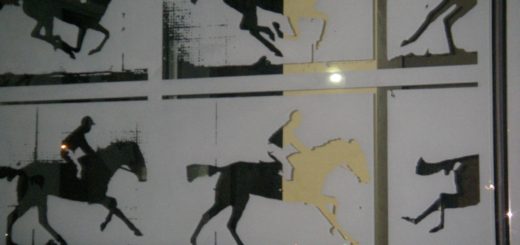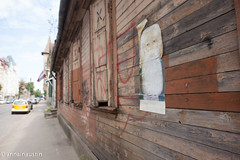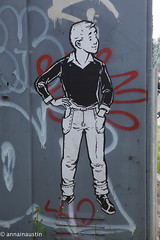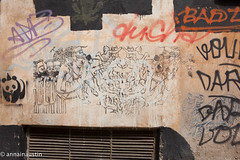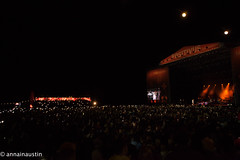Reruns: COL. SHERMAN T. POTTER
This is part of the reruns series of guest posts by guest writer Jason Sparks
COL. SHERMAN T. POTTER
Harry Morgan in M*A*S*H, 1972-1983, CBS
Primogeniture is the word for it when the oldest male child inherits everything; in many societies, this is, or was, thought to be, simply, the natural order. The Potter family of Bedford Falls, Nebraska employed this practice. The eldest son inherited everything, and used it to virtually monopolize his small town. The second-oldest, Ezekiel, got nothing, which turned into something—a Protestant work ethic and an inherent anger that drove him out of Nebraska, all the way to Missouri, where he fathered Sherman Tecumseh Potter in 1896.
Medicine was the plan early on; Ezekiel ran a horse farm, and did not know what to make of it when Sherman, at the age of eleven, delivered a breeched foal single-handedly. Likewise, his biology teacher in high school did not know what to make of it when Sherman dissected the obligatory frog in record time. Sherman soon found himself working for a veterinarian in Columbia while taking pre-med courses at Mizzou, which is where he was when he met Mildred, his wife for the rest of his life, and when he got “a nice little telegram from Woodrow Wilson,, as he put it in his memoir, the colorfully-titled Measured Out In Buffalo Chips.
Sherman became a doughboy, as did most of his generation, thus allowing the Brits to have a modicum of that same generation come home alive. He was a field medic, of course, and the stories of his time in the trenches have been conflated; we always want to hear that Grandpa did neat things in the war, don’t we? The official records seem to corroborate that yes, he and Ernie Hemingway likely were on the same ambulance detail a few times. No, he didn’t treat Alvin York, and he owned up to that himself in Chips: “York was in Bastogne—which you can learn from picking up the damn Funk & Wagnall’s yourself—and I was in Ypres! I’d have been closer to Kansas City if I were in Knob Knoster!”. He did, however, treat one notable soldier for damage from mustard gas, and while Potter marked the treatment as unsuccessful, it did forever change the fate of the patient, PFC Rondo Hatton.
After the war, the Army brass made Potter a deal, and he knew he’d be a fool to walk away from such an offer: stay in, serve in the medical unit at Ft Dix, and get a full ride to Princeton. He took the deal, and when he was honorably discharged in 1926, was able to hang his shingle proudly back home in St Joseph. It hung proudly until 1941, when Potter “got the second nice little telegram I’d ever gotten, this time from FDR…pretty much read the same.” He served in North Africa and Europe, and was in fact among a team of doctors and surgeons who first suggested to the War Department that a medical unit should be as readily available as possible to the injured. “With any surgery or procedure to save a man’s life,” Potter wrote in a letter to Eisenhower himself, “time is of the proverbial essence; out here, when your patient has basically been taken apart, by a weapon expressly designed and used for taking him apart, time is the essence. If we can remove a hindrance between a soldier and treatment, we must remove it, full stop.”
Thus it was that the idea sparked by Potter and a handful of others had, by ’45, grown into the concept of the Mobile Army Surgical Hospital, or MASH unit—a portable hospital, positioned and re-positioned near the casualties. Potter would oversee one of the first such hospitals from France all the way to a cattle farm just outside Dresden, where he found himself when the war ended, treating the emaciated POWs from the town–including, although Potter never put this together, a skinny PFC from Indianapolis. Shame, really; he never knew that Pvt. Vonnegut had overheard Potter react to the news of the surrender, immediately followed by the screams of more wounded soldiers being brought in, by saying, “So it goes”, and nothing else.
Sherman believed, after 1945, that his military career was over, and it seemed as though it was over; he returned to his practice in St Joe, saw his daughter get married, saw himself become a grandpa. He saw the world changing, which it was doing at an accelerated pace between 1945 and 1950; “Not only that,” he wrote, “I saw the world changing the people. Me and Mildred went to a party, long about ’47, where every man in the room, yours truly included, had been in the war…After about two hours, we all started to notice something. The ladies sat or stood where they pleased, facing every which way. Every man in the room—including, again, yours truly—had backed up against a wall. We were all men, all smart, successful, and tough in our way, but damned if the war hadn’t turned us into a pack of spooked horses.”
The quote above is not from Buffalo Chips, but from a piece published in the Saturday Evening Post, written by a green freelance writer named Oscar Madison; that article found its way to the desk of Potter’s fellow Missouri native, President Truman. Truman knew Potter from fundraising events back home, and, when he deemed it necessary to send soldiers to Korea, Potter received a hand-written letter from POTUS (as opposed to the prior telegrams) asking him to take a hands-on role in a combat medical unit. Potter drove a hard bargain—his own MASH unit to command, a higher rank, and after this, never again. Potter figured that Truman would either fold at the heightened ante, or accept, and give Potter exactly what he sought. The newly-minted Colonel Potter was surprised.
The Colonel would come to speak of his command over the 4077th in warmer tones than he spoke of either of his previous tours of duty—and he established a tontine with his WWI comrades (the winner, who turned out to be Potter, received a rare brandy acquired during the war). Perhaps it was because he was old enough to have fathered every single person serving under him, and often found himself fathering them (especially the clerk from Iowa, the Boston Brahmin doctor, and the wiseacre doc from Maine, not that the latter two would ever admit they needed it). Perhaps it was the wholly un-military opportunities he found—the horse he was able to acquire, only to wind up sharing it with the old Korean gent who had ridden a similar steed against the Russians. Perhaps it was his presence as they evolved—as the head nurse married and divorced, as the clerk from Toledo finally quit going for a Section 8, and took himself a bride. It’s hard to say. Potter himself would never have even said it—never would have said that he came into his own in Korea, accepted that he was a tribal elder now, a man with skill, vision, experience, and a talent for sharing it. He’d never see himself that way, though; he was a country doctor, no less, no more (an attitude he would share with a descendant of his, a Dr Leonard McCoy, whom Potter would never meet).
Of course, ironically, he stopped being a doctor in 1956, after a brief stint treating veterans; one of his horses, of all things, reacted to a bolt of lightning by kicking Potter’s right hand, and breaking 80% of the bones therein. The VA treated his hand as well as they could, but it would be predominately useless for the rest of his life. Less so, however, the rest of Potter; knowing he wanted to treat the ills of the world and make life optimal for his fellow vets, he ran for Congress in 1958, 9th district of Missouri, Democrat, and won—and remained in office for decades to come. He had the ear of Presidents from both parties; it’s said that he convinced LBJ to sign the Civil Rights Act, and he’s more or less clearly on a tape from 1973, saying, “Dick, you know damn good and well that the jig is up. Be a man about it, son.” Unfortunately, only JFK really listened to him about Vietnam; fortunately, Johnson listened about Medicaid. When he was unseated in 1980—the Reagan Revolution—he was reconciled to it, as was his family; he was 84 by this point, and while he could still mesmerize the House with a speech, he was also beginning to call people by the wrong names—he kept referring to Carter as “Henry Blake”, whomever that was. He died in 1983, Mildred by his side, watching his great-granddaughter ride a beautiful chestnut mare.
